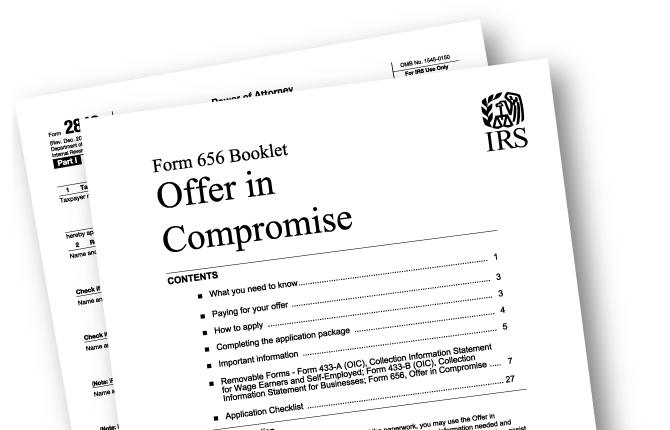A New Beginning - Tax Resolution!
by Martin, Ketterling & Associates Enrolled AgentOffer in Compromise
Welcome to my new tax resolution blog post. My name is Ryan Jacobs and I am an Enrolled Agent meaning I can represent taxpayers in front of the IRS. I’m starting this blog for two reasons: to provide in depth information about tax representation to the busy taxpayer that may have delinquent taxes due and to keep myself up to date on the massive amount of information that is out there for taxpayers to use to defend themselves against IRS intrusion. It seems appropriate to begin the conversation discussing Offers in Compromise (OIC’s) as they are likely the resolution option most people have heard about, but that there is a lot of incorrect information out there on the internet and other forms of advertising. Hopefully this blog provides some useful information to assisting you in resolving your tax problem!
In certain situations where a taxpayer has significant tax debt, it may make sense to file an Offer in Compromise to satisfy the debt and end their tax problem. Offers in Compromise are when the IRS accepts less money than the debt due for a tax liability. While these might initially sound appealing, there are many factors that have to line up for a taxpayer to qualify and even more diligence taken in annotating and submitting an organized offer that make them very difficult to get accepted. There are three types of OIC’s: Doubt as to Liability, Doubt as to Collectibility, and Effective Tax Administration. The majority of OIC’s submitted will be classified as Doubt as to Collectibility as it’s quite rare for the situations to occur that necessitates the submission of a DATL or ETA OIC.

As the title suggests, DATC offers imply that the taxpayer does not have the ability to pay the tax due in full before the statute of limitations on collection of the tax. Thus before an offer can be submitted, sufficient research into the assets, income and allowable expenses of the taxpayer must be conducted to see if indeed that taxpayer does not have the ability to pay in full. Many tax professionals will call this financial analysis and investigation of liability and it should almost always be the first step to take in any tax problem resolution. The IRS has a special unit designated to review submitted offers and they have strict guidelines as to what offers they will accept. If the IRS can find any possible way for you to pay your tax in full then don’t count on an offer in compromise getting accepted. Examples of ways the IRS might find to full pay a tax include liquidating assets, getting a line of credit against an asset (such as a house), or even dissolving a business to sell off the assets involved. So to put it in simpler terms, the IRS would rather you sell something or get a loan from someone else before you try and pay less than the full tax debt.
However, there are many situations that would qualify someone to submit an offer. For example, if a taxpayer had previously been making a lot more income than they are currently then their ability to pay delinquent taxes might be significantly impaired. Or it could be the case that the taxpayer is retired and their only income is social security that just allows them to meet their basic living expenses. It might even be the case that you make good money, but the IRS didn’t get around to collecting from you until there time to legally collect the tax due is already run out! If your situation is like these or many others then a good practitioner can assist you in preparing an offer that the IRS has no choice but to accept.
A good practitioner will also take the time to research financial planning options that move equity between assets in ways that provide for the health and welfare of the taxpayer’s family and the production of income of the taxpayer. These are allowable reasons to use the money you have to help improve your livelihood instead of paying that valuable money to the IRS. They are also often the keys that help a taxpayer qualify for an Offer in Compromise instead of full paying the tax due through an installment agreement. Importantly, each taxpayer’s situation is unique and takes time to research the best avenue to take to end their tax problem. A good tax practitioner will take the time and build a compelling case that might lead to an Offer in Compromise saving you a lot of money and ending your tax problem!
